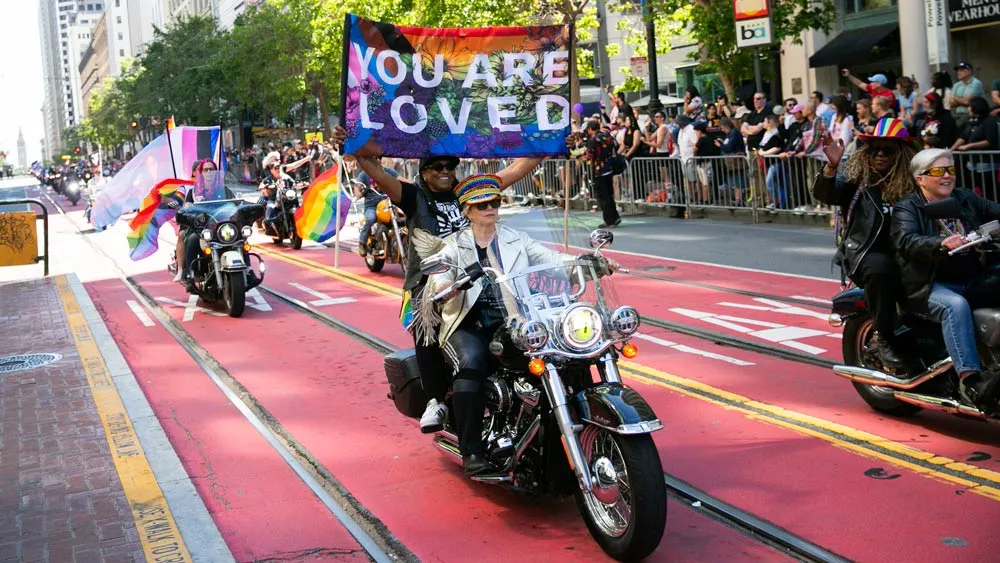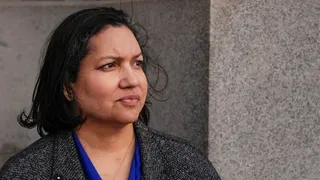August 31, 2012
Democrats Encounter Bumps on the Road to Charlotte
Jason St. Amand READ TIME: 5 MIN.
RALEIGH, N.C. (AP) - When Democrats from around the country gather next week in Charlotte to nominate President Barack Obama for a second term, some may not feel completely at home despite the Southern hospitality.
While the party was eager last year to pick a convention city that would help it expand its foothold in the New South, the selection of Charlotte has been a source of consternation among key constituencies and uncertainty among Democratic strategists.
Gay rights activists, for example, plan to protest for same-sex marriage in a state where North Carolina voters easily passed a constitutional amendment banning it. Members of another key Democratic group, organized labor, intend to picket, too, in part because union leaders are unhappy Democrats picked a state long viewed as hostile to them.
Even North Carolina Democrats have found the state to be cooler lately, with Republicans winning control of the state legislature in 2010 and considered favorites to capture the governor's mansion this year.
And if Democrats were hoping that North Carolina would provide a narrative to support the president's case that the economy is on the rebound, they must be disappointed.
The state has an unemployment rate of 9.6 percent - one of the highest in the country. The Charlotte metro rate is even higher at 10 percent, making it more difficult to portray the city of 750,000 as on the cusp of recovery after its once-soaring banking industry tumbled.
"The plan was that Charlotte would allow them to give the message that the banks went down, but Charlotte is coming back, just like the country," said Eric Heberlig, a political science professor at the University of North Carolina-Charlotte. Heading into next week, he added, "it's harder to use Charlotte as the place for the national economic turnaround, driven by Obama economic policies."
Democrats remain hopeful that the convention will help launch Obama to a repeat of his upset victories in North Carolina and neighboring Virginia in 2008. Polls show Obama and Republican Mitt Romney are running neck and neck in the Tar Heel state, where Democrats still have a comfortable edge in voter registration and voters have demonstrated a progressive streak.
"There are a lot of things in his favor," said state Rep. Mickey Michaux of Durham, a Democratic convention delegate, citing Obama's work to rescue the auto industry and lead military efforts to kill 9/11 mastermind Osama bin Laden. He said North Carolina voters understand that Obama has been hamstrung by Republican obstructionists in Congress to improve the economy and that the president still "holds out our hope for what people want to see."
Two years ago, Democrats had good reason to have North Carolina on their minds.
After all, North Carolina voters had handed Obama a narrow victory over Republican John McCain in 2008, the first for a Democratic presidential candidate since Jimmy Carter in 1976. Obama's win was partly due to a strong showing in urban centers such as Charlotte.
But now, as nearly 6,000 Democratic delegates and tens of thousands of others head to North Carolina's largest city, they may appreciate why one political analyst called North Carolina "an ambivalent state."
And some of the national party's main constituencies have not been shy about their displeasure with the more conservative politics of the host state.
Last May's passage of the gay marriage ban, which was backed by evangelist and North Carolina icon Billy Graham among others, provided a dose of reality to liberal activists, revealing a gap between Obama and more socially conservative North Carolina voters. The day after the referendum, the president voiced his support for gay marriage.
The selection of Charlotte remains a sore point with unions, which gave $8.3 million toward the 2008 convention in Denver that nominated Obama. This time, many unions are refusing to financially support the convention because of North Carolina's ban on collective bargaining for teachers and other public workers, which contributes to the state's lowest-in-the-nation rate for organized workers.
The state's political picture also doesn't reflect the North Carolina of 2008, when Democrats retained their near-lock on legislative and executive branches, thanks in part to Obama's coattails.
Two years later, economic concerns helped Republicans win control of the state Legislature for the first time in 140 years.
Things didn't get any better for state Democrats this year. Democratic Gov. Beverly Perdue decided against an uphill re-election fight, leaving the party scrambling to find a candidate. Then the executive director of the state party quit amid sexual harassment allegations, and the national party was unable to nudge aside state party Chairman David Parker, who had approved a settlement with the alleged victim, a party employee who alleged he was fired for speaking up.
But Democratic strategists say none of these issues will matter once the convention begins and the party starts delivering its message to voters.
"Those things may be headaches and may be bothersome but in the great scheme of things don't matter," said Gary Pearce, a longtime Democratic consultant in North Carolina who worked with former four-term Gov. Jim Hunt and ex-U.S. Sen. John Edwards. "They made a strategic decision early on that we want to go to North Carolina to send a signal that we are challenging Romney in what should be his home turf."
Obama won the state in 2008 by more than 14,000 votes. But his success that year also camouflaged a statewide political climate that for decades has been inherently conservative at its base, but marked by a progressive element that grew out of the state's prestigious university system and focused upon improving education.
During the civil rights era, North Carolina largely avoided the violence and official defiance of segregation that occurred in neighboring states. Political leaders sought to attract new business by promising to keep the peace. However, state voters repeatedly returned Republican Sen. Jesse Helms to Washington over three decades, even with his racially tinged campaigns.
While liberal voters in cities such as Charlotte or Chapel Hill can be expected to turn out for Obama, many registered Democrats in smaller towns such as Greenville and Goldsboro felt the national party left them behind years ago.
"There's a loyalty to the Democratic Party," said Kareem Crayton, a University of North Carolina law professor who studies issues of politics and race, "but that loyalty doesn't necessarily extend to the national party."
For now, North Carolina has the markings of a battleground state for its 15 electoral votes.
The TV airwaves have lit up with advertisements from both campaigns and super PACs in North Carolina, where at least $56 million worth of commercials have run so far. Both sides are investing heavily in voter-outreach and volunteer efforts.
"The Democrats in '08 did an exceptional job of registering voters and getting voters to the polls and the Republicans did a poor job," said Republican state Senate leader Phil Berger, but "I suspect that what you're going to see this time is both parties doing a good job of getting voters (out)."
The Republicans' 20 or so "victory" campaign offices still fall short of the 40 Obama for America locations in North Carolina. The 2008 campaign never left the state, as Obama for America kept volunteers organized to push his agenda and support allies in local elections.
Obama's "grassroots organization is connected to communities across the state in ways Romney's campaign just cannot match," said Cameron French, Obama's North Carolina campaign press secretary.
And yet the increasing number of independent voters in North Carolina - 1.6 million today compared to 1.3 million at this time in 2008 - adds to the uncertainty over November's outcome.
At first glance, "you probably would have thought this was the same state," Crayton said. "It goes to show how much a slight shift (in) the politics can make a competitive state change."




